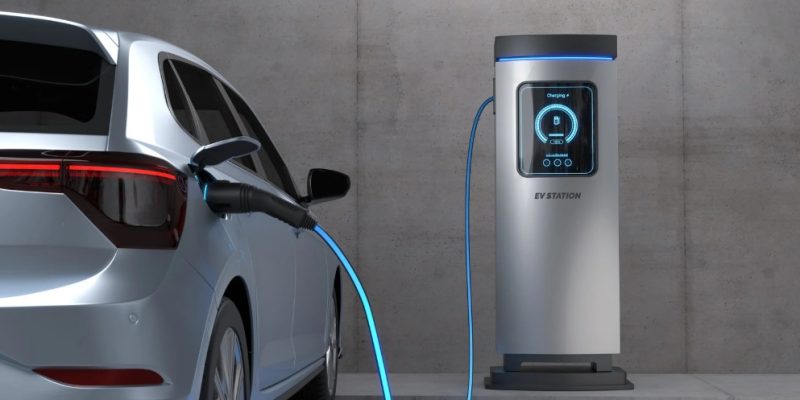
Developing Employee and Visitor EV Charging Strategies for Businesses
As the shift towards electric vehicles (EVs) gains momentum, businesses have a crucial role to play in supporting this transition.
Providing EV charging facilities for employees and visitors isn’t just an added convenience; it’s an opportunity to align with sustainability goals, attract top talent, and bolster your organisation’s reputation.
Developing a strategic approach to establishing an electric vehicle charging hub, while assessing the necessary electrical infrastructure, can yield significant benefits for businesses of all sizes.
Why EV Charging Matters for Businesses?

The UK government’s commitment to banning new petrol and diesel cars by 2030 has accelerated the adoption of EVs.
With more employees and customers opting for electric vehicles, a growing expectation has emerged for businesses to offer charging facilities on-site. Here’s why this should be on your radar:
Boost Your Sustainability Credentials
Installing EV charging points supports your sustainability agenda, showcasing your business’s commitment to reducing carbon emissions.
This resonates with eco-conscious employees, visitors, and stakeholders, bolstering your green reputation.
Attract and Retain Talent
Forward-thinking businesses use EV initiatives as part of their employee perks. Offering convenient charging facilities can make your workplace more appealing, especially for workers who already own or are considering purchasing an EV.
Enhance Customer Experience
Providing accessible EV charging for visitors demonstrates that your business is modern, considerate, and in touch with evolving customer expectations. Visitors, clients, and partners are more likely to view your brand favourably.
Future-proof Your Business
With EV adoption set to increase, businesses that invest in EV charging now will be better prepared for the future. Early adoption allows you to scale as demand grows without the pressure of being reactive.
Key Considerations for Developing Your EV Charging Strategies for Businesses

Creating an effective EV charging strategy requires a tailored approach that aligns with your business’s objectives, budget, and space. Below are steps to guide your decision-making process.
1. Assess Demand
Begin by identifying who will use your charging facilities. Are you catering primarily to employees, visitors, or both? Consider conducting surveys to gauge interest and understand the specific needs of your workforce and customers.
Similarly, analyse your building location, are there already EV charging points nearby? Pinpointing demand ensures your investment meets expectations.
2. Evaluate Your Electrical Infrastructure
Before installing an electric vehicle charging hub, it’s essential to assess your current electrical infrastructure’s capacity. Installing multiple charging units can place a significant demand on your site’s electricity supply.
Work with an electrician or energy specialist to ensure your infrastructure can handle this additional load and explore solutions like load balancing to manage usage effectively.
3. Choose the Right Chargers
There are different types of EV chargers, ranging from slow (3kW) to rapid (50kW+). For workplaces, standard chargers are usually sufficient for employees charging over an extended period.
For visitors, rapid chargers might be better suited to allow for quicker turnaround times. Understanding the needs of your users will help you decide on the right mix.
4. Location and Accessibility
Once you’ve decided to set up an electric vehicle charging hub, the placement is critical. Designate parking spaces close to entrances to ensure ease of access.
Additionally, make the process inclusive by ensuring chargers are accessible for individuals with mobility challenges.
5. Implement Smart Solutions
Smart charging systems allow for better management of your charging stations. Features like reservation systems, user authentication, and energy usage monitoring can streamline the process for both your business and the end-users.
6. Integrate with Renewable Energy Sources
For businesses aiming to reduce carbon footprints further, integrating your EV charging stations with renewable energy sources, such as solar panels, is worth considering. This approach not only aligns with green initiatives but may also help reduce long-term energy costs.
7. Plan for Future Growth
The transition to EVs is accelerating rapidly, meaning demand for your charging facilities could increase sooner than anticipated. Plan ahead by installing scalable infrastructure that allows additional chargers to be added as needed without significant costs or disruption.
The Benefits You’ll Reap

Integrating EV charging into your business’s operations has wide-reaching benefits. Here are some top advantages that make it a worthwhile investment:
Enhanced Brand Image
Offering EV charging aligns your business with the eco-conscious consumer mindset. Being seen as an environmentally responsible organisation makes a strong impression on customers, clients, and investors.
Cost Savings and Incentives
Many EV charging installations qualify for government grants, making it easier to offset upfront costs. Additionally, workplace EV schemes can positively influence employees’ travel expenses, particularly for those benefiting from lower running costs compared to petrol or diesel vehicles.
Improved Employee Satisfaction
Employees appreciate perks that improve their daily commutes. Providing charging facilities helps demonstrate that you care about their convenience and wellbeing, fostering higher satisfaction and loyalty.
Competitive Advantage
Standing out in a competitive business environment is essential. Companies equipped with EV charging facilities show their forward-thinking nature, which can give you an edge when securing partnerships or winning business.
Building a Sustainable Future Starts Here
The transition to EVs is more than a trend; it’s a fundamental shift in how we approach transportation. Businesses that adapt today by implementing electric vehicle charging hubs and ensuring their electrical infrastructure is equipped for the future will enjoy the lasting benefits of being ahead of the curve.
At its core, developing an EV charging strategy isn’t just about infrastructure; it’s about shaping a greener, more sustainable world.
Whether you’re looking to attract eco-conscious customers, empower your employees, or future-proof your operations, the time to act is now.
Every forward-thinking business needs a roadmap for change. Why not start with a conversation? Evaluate your space, talk to an expert, and take that electrifying step into the future. After all, you’re not just paving the way for innovation; you’re leading it.





